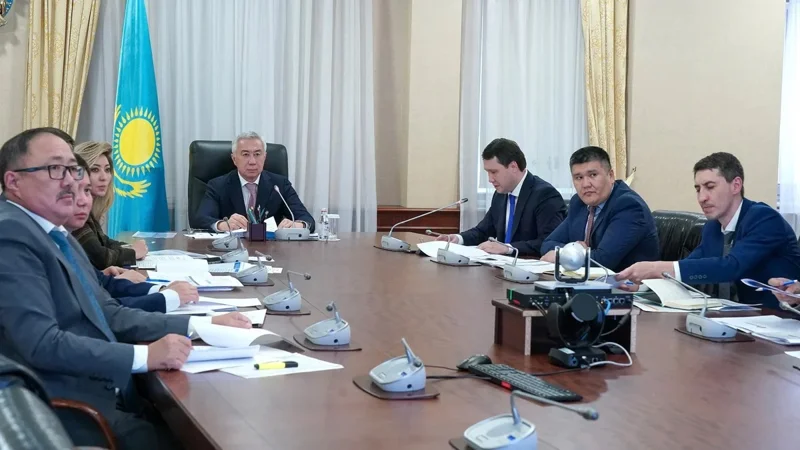Kazakhstan to launch 202 investment projects to drive food self-sufficiency
Kazakhstan’s Deputy Prime Minister and Economy Minister Serik Zhumangarin on Friday held a meeting on expanding agro-industrial projects and curbing inflation following directives from the Head of State, Kazinform News Agency reports.

During the meeting, Deputy Minister of Agriculture Yermek Kenzhekhanuly presented the draft concept Investment Order — a portfolio of 202 projects across 12 areas of the agro-industrial complex for 2025–2027.
The Investment Order concept was developed consisting of 202 projects that will not only supply the domestic market with in-demand food products, but also allow us to shift from import substitution to export growth, said Kenzhekhanuly.
The concept’s key areas are products with high import dependency: poultry meat (self-sufficiency rate at 79%), cheese and cottage cheese (52%), sugar (33%), processed meat products (60%), and fish (67%). Other projects aim to boost exports and deepen processing of grain, potatoes, fruit and vegetable crops, hides and wool, as well as to build dairy farms, greenhouse complexes, and storage facilities.
In poultry, full self-sufficiency is expected this year, with exports projected to grow thanks to new projects. In the dairy sector, a large-scale initiative has been underway for the past three years, offering preferential loans at 2.5% annual interest for the construction of dairy farms. So far, 49 new or expanded farms have been launched, with 20 more to open by the yearend and 17 more next year. Thanks to this initiative, the country is expected to fully cover its domestic demand for raw dairy within the next 2–3 years. In greenhouse development, major projects are being implemented in Shymkent, Turkistan, West Kazakhstan, and Almaty regions, ensuring year-round vegetable supplies.
Special attention is given to potato and fruit processing. Ongoing projects include collaborations with PepsiCo and Iran’s Solico, along with 27 other initiatives, which will significantly increase processing capacity for potatoes, fruits, and melons in Kazakhstan.
The Ministry of Trade and Integration presented an analysis of the impact of imports on inflation for socially significant food products. On average, imported brands account for 16.5% of socially significant food products, reaching up to 50% in border regions. The lowest import shares are in Turkistan (8.4%), Kyzylorda (7.6%), Almaty (7.3%), and Abai (2.8%) regions. Imported inflation contributed 32% to the price index of socially significant food products in the first half of the year.
Analysis of fiscal data identified 234 foreign brands of socially significant food products sold in stores nationwide. Overall, 97% of imported socially significant food products come from EAEU countries: Russia (184 brands), Belarus (23), Kyrgyzstan (10). Products also arrive from Italy, India, China, Pakistan, and Turkey, but their combined share does not exceed 2%, noted First Deputy Minister of Trade and Integration Aizhan Bizhanova.
Together with the State Revenue Committee, the Ministry of Trade and Integration is piloting digitalization of trade flows, allowing real-time monitoring of foreign brands and consumer preferences. Once the pilot is complete, regional authorities will be able to assess import impacts in their territories and efficiently boost domestic production to meet local needs.
Achieving full self-sufficiency in food production will not only strengthen food security, but also help stabilize prices. At the same time, when developing projects, it is crucial to rely on proven technologies and carefully calculate the raw material base—especially for projects involving water-intensive crops, stressed Serik Zhumangarin.
Earlier, it was reported prices for socially important products remain stable for a month in Kazakhstan.
